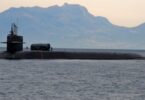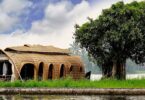PRESIDENT OF INDIA
President of India is the executive head of the Union of India. Citizens of India take no direct part in election of their President. Instead he is elected by members of the Parliament and the State legislatures, i.e., by representatives of the people. The legislators elect the President by secret ballot. The name of a candidate for the office of the President of India may be proposed by any one member of the electoral college. The electoral college shall consist of (a) the elected members of both Houses of Parliament, and (b) elected members of the Legislative Assembly of the States. (Elected members of the Legislative Council, however, do not constitute the electoral college for election of the President of India. The Chief Minister of a State of India is NOT eligible to vote in the Presidential election if he is a member of Upper House of the State Legislature). The President can be removed from office if he goes against the Constitution. When he does that, not less than one-fourth of the total membership of both the Houses of Parliament should give 14 days’ notice that they propose bringing a motion of “impeachment” against the President. The motion can be introduced in either House i.e., in the Lok Sabha or in the Rajya Sabha. If a two-thirds majority of the total membership of the Parliament votes that the charges against the President stand proved, the latter is removed forthwith.
India got its First President (Rajendra Prasad) on 26 Jan 1950 when Constitution of India came into force and Ram Nath Kovind is 14th President of India
List of All Presidents of India in Chronological order:
1. Rajendra Prasad
Period: 26-Jan-1950 to 13-May-1962
2. Sarvepalli Radhakrishnan
Period: 13-May-1962 to 13-May-1967
03. Zakir Hussain
Period: 13-May-1967 to 3-May-1969
Varahagiri Venkata Giri
Period: 3-May-1969 to 20-Jul-1969
Do You Know: VV Giri served as Acting President of India when Zakir Hussain Died. However he later resigned to fight President’s election.
Reated: Indian Prime Minister’s List
Muhammad Hidayatullah
Period: 20-Jul-1969 to 24-Aug-1969
Trivia: Chief Justice of India (Huhammad Hidayatullah) become President when Acting President V V Giri resigned his post to fight President’s Election.
04. Varahagiri Venkata Giri
Period: 24-Aug-1969 to 24-Aug-1974
05. Fakhruddin Ali Ahmed
Period: 24-Aug-1974 to 11-Feb-1977
Basappa Danappa Jatti
Period: 11-Feb-1977 to 25-Jul-1977
Do You Know: Basappa Danappa Jatti served as Acting President of India when Fakhruddin Ali Ahmed died.
06. Neelam Sanjiva Reddy
Period: 25-Jul-1977 to 25-Jul-1982
07. Giani Zail Singh
Period: 25-Jul-1982 to 25-Jul-1987
08. Ramaswamy Venkataraman
Period: 25-Jul-1987 to 25-Jul-1992
09. Shankar Dayal Sharma
Period: 25-Jul-1992 to 25-Jul-1997
10. Kocheril Raman Narayanan
Period: 25-Jul-1997 to 25-Jul-2002
11. Dr. A. P. J. Abdul Kalam
Period: 25-Jul-2002 to 25-Jul-2007
Do you know: Full name of Dr. Kalam is Avul Pakir Jainulabdeen Abdul Kalam
12. Pratibha Patil
Period: 25-Jul-2007 to 25-Jul-2012
13. Pranab Mukherjee
Period: 25-Jul-2012 to 24-Jul-2017
14. Ram Nath Kovind
Period: 25-Jul-2017 to 25-Jul-2022
15. Droupadi Murmu
Period: 25-Jul-2022 to till date
Powers of the President with respect to Parliament: The President can summon, prorogue, address and send messages to the two Houses of Parliament. He gives assent to bills passed by the Parliament. He can issue ordinances when Parliament is not in session. He has the power to declare war or make peace. He can declare a state of emergency arising due to war, external aggression, internal disturbances, failure of constitutional machinery in any state or threat to the financial stability or credit of India.
The Indian Parliament can invade the State List if
(1) a subject in the State List assumes national importance, and
(2) a proclamation of emergency has been issued by the President of India.
Oath of office : The oath of office by the President of India is conducted by the Chief Justice of India. The President is not a member of Parliament (or any State Legislature). The President holds an office of profit in the Government of India, thus he cannot be a member of Parliament.
Related: All Vice Presidents of India
Qualifications to become President: A Candidate for the office of the President should have the following qualifications:
- He/she should be an Indian citizen.
- He/she should not be less than 35 years of age.
- He/she should have qualifications for election as a member of the House of the People.
- He/she should not hold any office of profit under any government for local body.
- He/she should not be a Member of Parliament or any State Legislature. A government servant or a servant of a local authority is, however, ineligible for election as President.
ELECTION OF THE PRESIDENT
The election of the President is made by secret ballot in accordance with the system of proportional representation by a single transferable vote i.e., by indirect direction. The President is thus elected by an electroral college consisting of elected members of Parliament and of the Legislative Assemblies of the States i.e., by representatives of the people. The citizens have no direct part in this election.
A candidate for the office of the President should not be a member of Parliament or any State Legislature. In the case of a conflict between the Centre and a State in respect of a subject included in the Concurrent List in the Constitution, the matter is to be resolved by the Supreme Court of India. The President of India can preside in the proceedings of either House of Parliament without having a right to vote. The disputes regarding election of the President are referred to the Supreme Court of India.
Amendment of election procedure of the President: For this purpose, a Bill is required to be passed in Parliament by the required majority and to be ratified by the legislatures of atleast half of the States.
Tenure: Elected for five years but is eligible for immediate re-election and can serve any number of terms.
POWERS of PRESIDENT OF INDIA
- Executive and Administrative Powers : He appoints the senior officials of the state including the Prime Minister. All Union Territories are under the President of India.
- Legislative Powers : (a) Appoints 12 members to the Rajya Sabha and two Anglo-Indian members to the Lok Sabha; (b) Dissolves the House of People; (c) Assents or withholds his assent to any Bill passed by the Parliament; (d) Issues ordinances.
- Financial Powers : (a) Causes the budget to be laid before the Parliament; (b) Sanctions introduction of money bills; (c) Apportions revenue between the Centre and the States.
- Judicial Powers : Empowered to grant pardons, reprieve, remit the sentences, or suspend, remit or commute punishments.
- Emergency Powers : Article 352 empowers the President to proclaim an emergency and take under his direct charge the administration of any State. The President cannot be questioned by any court for the action taken by him in the discharge of his duties. No criminal proceedings can be launched against him. He may be removed from office for violation of the Constitution by impeachment (Article 61).

























one day I will also become president of india
Dolly chandra
Abdul kalam was best president